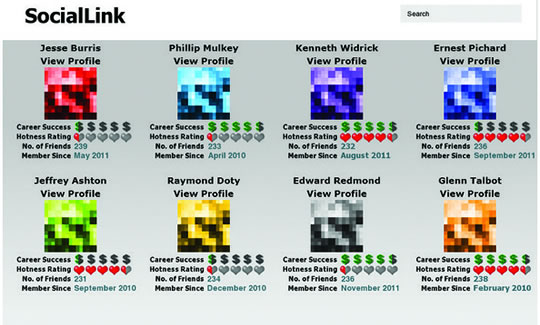I wrote recently about some new research that explored the sharing of good news. The study wanted to explore the hypothesis that those around us would love to hear the exciting and wonderful things we have to share. It turned out that the opposite was in fact the case, with people tending to favour those who had stories of similar interest levels to themselves.
In other words, we tend to seek out people who make us feel better about ourselves. Would the same apply when we engage with our social networks online? Do we seek out those that make us feel better about ourselves? That was the question posed by a new study.
It suggests that when we’re in a stinker of a mood, we tend to network online with those that are doing even worse, all in a bid to make us feel better about our own situation. This flies in the face of the belief that we rather look for content online that is inspiring and motivational.
The researchers suggest that our perceptions of ourselves are often made in large part by comparing ourselves to those around us. In other words, it’s relative rather than absolute. At least, it is when we’re in a bad mood.
The study reveals that when we’re in a more positive frame of mind, we’re quite happy to engage with those that are doing better than ourselves online. Those upward comparisons can be inspirational and supportive, just so long as we’re in a good mood. When we’re in the dumps however, the opposite tends to be the case, and those successful folks simply make us feel even worse.
“People have the ability to manage how they use social media. Generally, most of us look for the positive on social media sites. But if you’re feeling vulnerable, you’ll look for people on Facebook who are having a bad day or who aren’t as good at presenting themselves positively, just to make yourself feel better,” the researchers say.
The study saw participants primed to be in either a good or bad mood, after which they were asked to give their opinion about a new social networking site, which the researchers had called SocialLink.
Around half of the profiles available to view on the site were of successful people, with the others rather more average. You can see an example of what participants saw below. The researchers pixelated the faces of each profile so that sexuality did not play a part.
The profiles themselves were all pretty much identical, with the only distinguishing features being their career success and their ‘hotness’ rating.
It emerged that, most of the time, people would look at the profiles of those rated as successful and attractive. That was, except when they were in a rotten mood, when they spent much more time looking at the unsuccessful and plain looking profiles.
“If you need a self-esteem boost, you’re going to look at people worse off than you. You’re probably not going to be looking at the people who just got a great new job or just got married. One of the great appeals of social network sites is that they allow people to manage their moods by choosing who they want to compare themselves to,” the researchers conclude.
Would this also apply on enterprise social networks I wonder?

Haha, that doesn't surprise me at all. It's all about us at the end of the day isn't it?
I love this
Thanks, it’s very helpful post.